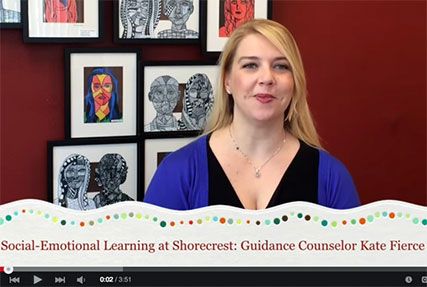

Skills for the Future
Source/Author: Mike Murphy, Headmaster
April 17, 2015
This past week, New York Times columnist David Brooks published a thoughtful article on 21st Century skills. Here are a few of them with brief explanations:
- Cross-class expertise: “In a world divided along class, ethnic and economic grounds, some people are culturally multilingual. They can operate in an insular social niche while seeing it from the vantage point of an outsider.”
- The ability to simultaneously hold two opposed ideas in mind.
- Purpose Provision: “Fully cultivated moral passions that can help others choose the one thing they should dedicate themselves to.”
- Making nonhuman things intuitive to humans.
- Capturing amorphous trends with a clarifying label: ”People with this skill can look at a complex situation, grasp the gist and clarify it by naming what is going on.”
- Social Courage: “Extroverted in issuing invitations but introverted in conversation - willing to listen 70% of the time. They build not just contacts but actual friendships by engaging people on multiple levels.”
How do we at school and families at home provide our children with the experiences that help them to develop these skills? While we are responsible for teaching students fundamental skills that allow them to be successful in their intellectual, physical, creative and service endeavors in school and in their careers, we share the responsibility to develop the habits of mind that expose children to higher order skills like the ones noted by Brooks.
One must be self-aware in order to grasp and develop the higher order thinking/social skills Brooks has identified. The work our teachers are doing in The Experiential School, Lower School and Middle School at Shorecrest with Responsive Classroom (RC) and Developmental Design (DD) deliberately encourages students to think about themselves and others. The intentional focus on the social-emotional development of our young children prepares them for the higher order thinking that Upper School teachers, universities and careers will hone.
Our curriculum fills the day. Yet, there are always new ideas or thoughts about what should be added to the curriculum with very little interest in dropping or stopping anything. Clearly, that is a formula for ineffective teaching and learning. In recent years Lower School and Middle School have been deliberate in incorporating RC and DD into the curriculum. Some may question why schools spend time focusing on social-emotional health and activities that look more like games than “real work.”
An article like Brooks’ adds clarity and importance to the social-emotional development work that happens at Shorecrest. Our children and their families live incredibly busy lives. Advisory periods and classroom activities that provide students time to think deeply about themselves, others and their values may not provide answers to questions on the SAT or ACT but they certainly provide our students with the opportunity to think like leaders when faced with the greater questions they will face in the increasingly diverse and dynamic communities in which they will live.
Cheers!
























